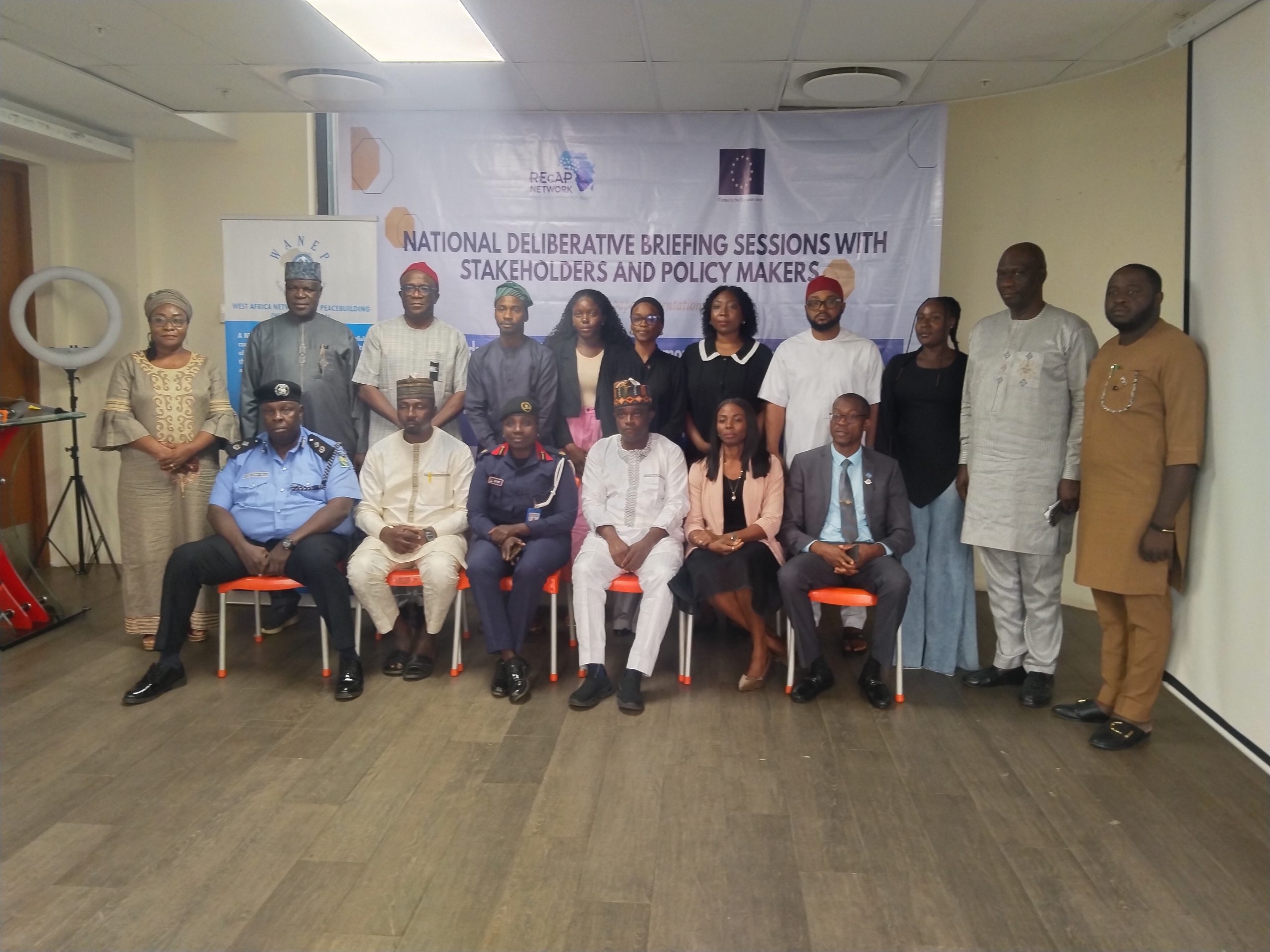Maureen Okpe
The West Africa Network for Peacebuilding (WANEP), under the EU-supported Research and Action for Peace (REcAP) program, hosted a national deliberative briefing to present key findings from two studies exploring the ideological, cultural, and security implications of madrassas in both Northern and Southwestern Nigeria.
The session on Thursday in Abuja, was attended by policymakers, researchers, civil society actors, and security stakeholders, focused on understanding how religious education intersects with radical ideologies, external funding, and youth identity in Nigeria.
The REcAP project, implemented by WANEP in partnership with the Danish Refugee Council (DRC) and the Stockholm International Peace Research Institute (SIPRI), aims to strengthen the role of civil society and research in shaping effective responses to conflict, violent extremism, and peacebuilding across West Africa and the Lake Chad Basin.
Read Also: WANEP harps on need to invest in peacebuilding
One of the working paper presentation of a major study titled “Madrasas, Charities and Religious Radicalism in Northern Nigeria: A Study of the Almajiri System,” authored by Prof. Freedom Onuoha, Dr. Al Chukwuma Okoli, and Dr. Owonikoko Saheed Babajide, explored the theological foundations and operational structures of the Almajiri system, particularly in Abuja, Kano, and Borno states, regions selected for their population size, security relevance, and Islamic education presence.
The research highlighted that the Almajiri system, rooted in the Arabic term al-muhajirun (meaning to migrate for knowledge), historically served as a respected Islamic education platform but has since suffered neglect, lack of regulation, and infiltration by unverified foreign actors.
According to Dr. Babajide who presented the paper, stated that the study found evidence of informal funding from foreign religious charities mostly from the Middle East but warned that such support is largely undocumented, making it difficult to monitor for extremist influence.
He disclosed that, from interviews conducted with school custodians, scholars, former Almajiri students, and security agents, a key concern is the lack of transparency around financial donations and the ideological content introduced by some foreign-linked clerics.
Babajide cited historical and contemporary cases where charities from countries like Saudi Arabia and Iran supported specific sectarian ideologies within Almajiri schools. However, direct links between this support and actual radicalisation remain hard to legally establish due to the clandestine nature of donations.
Dr. Babajide noted during the presentation that “most Almajiri schools are not documented or supervised, making them vulnerable to ideological manipulation through informal funding channels.”
“While the majority of Almajiri students are peaceful and focused on Quranic education, the lack of structure creates loopholes that can be exploited by extremist elements.”
A second study titled “Madrassas and Islamic Extremism among Teenage Muslim Students in Southwestern Nigeria” was presented by Dr. Busari Dauda of the University of Ilorin. Co-authored with Dr. Alatise Remi Kasalla from Osogbo, provided an empirical view of how madrassas are shaping youth religious identity in the South-West amidst growing ideological influences from the Middle East.
Unlike the Northern context, madrassas in Ilorin, Ibadan, and Osogbo were found to be more structured, often registered with education ministries and integrated into Yoruba-Islamic cultural life, Dr. Dauda revealed.
Read Also: WANEP advocates implementation, localisation of UN resolution
However, the study noted that sectarian interests and prestige seeking among madrassa founders contribute to a proliferation of ideologically-driven schools. Economic motivations and cultural acceptance also play significant roles in their expansion.
Dr. Dauda during his presentation stressed that, while the study found no widespread evidence of violent radicalisation, it did highlight growing perceptions of global injustice among teenage students, particularly around issues like the Palestinian conflict and Western treatment of Muslims.
He said, these sentiments, amplified by digital media and foreign ideological narratives, shape how young Muslims interpret their religious and social identity.
Dauda emphasized that “extremism is not part of the curriculum, but ideological influences can filter in through sect-based teachings and global narratives of Muslim victimhood.”

